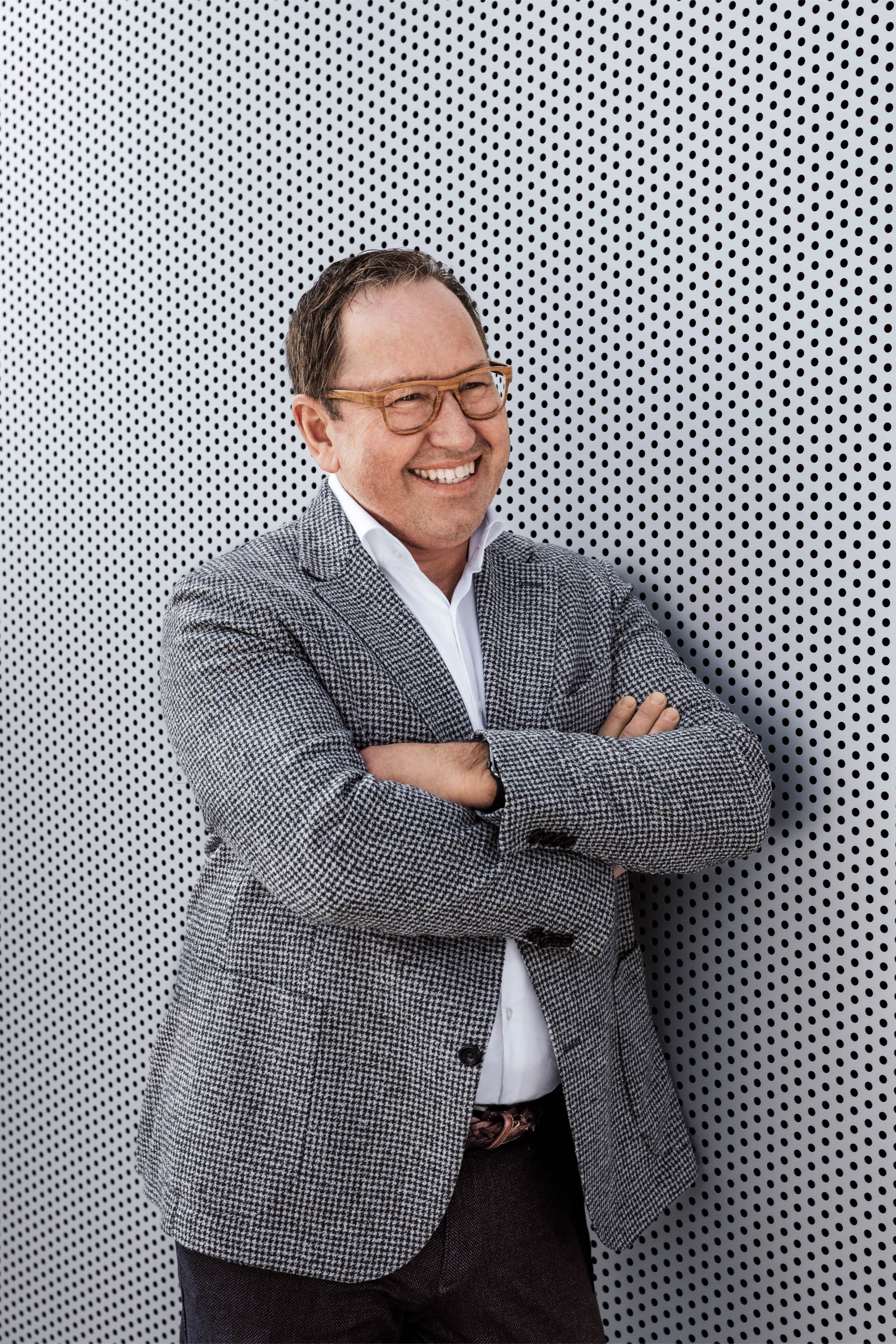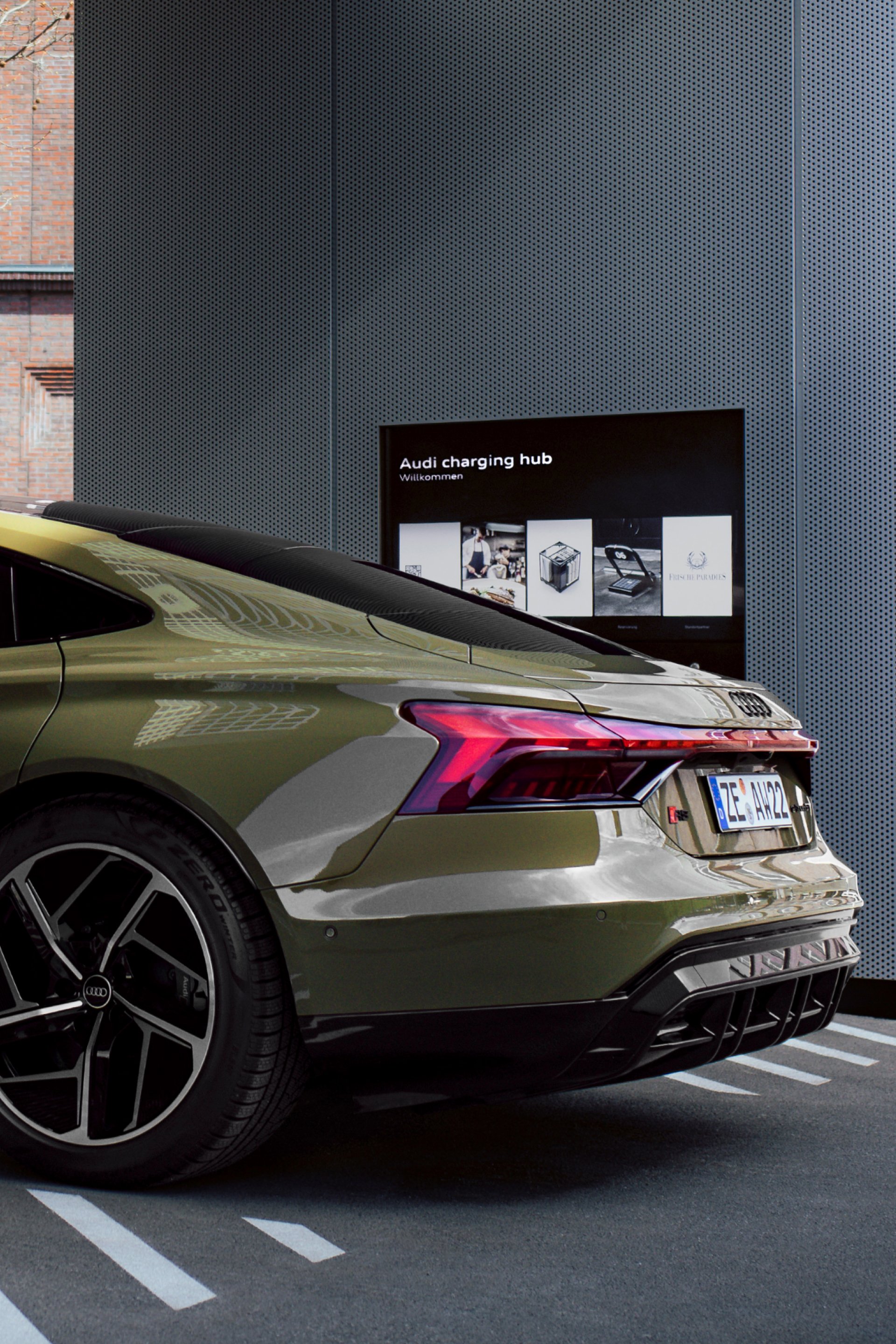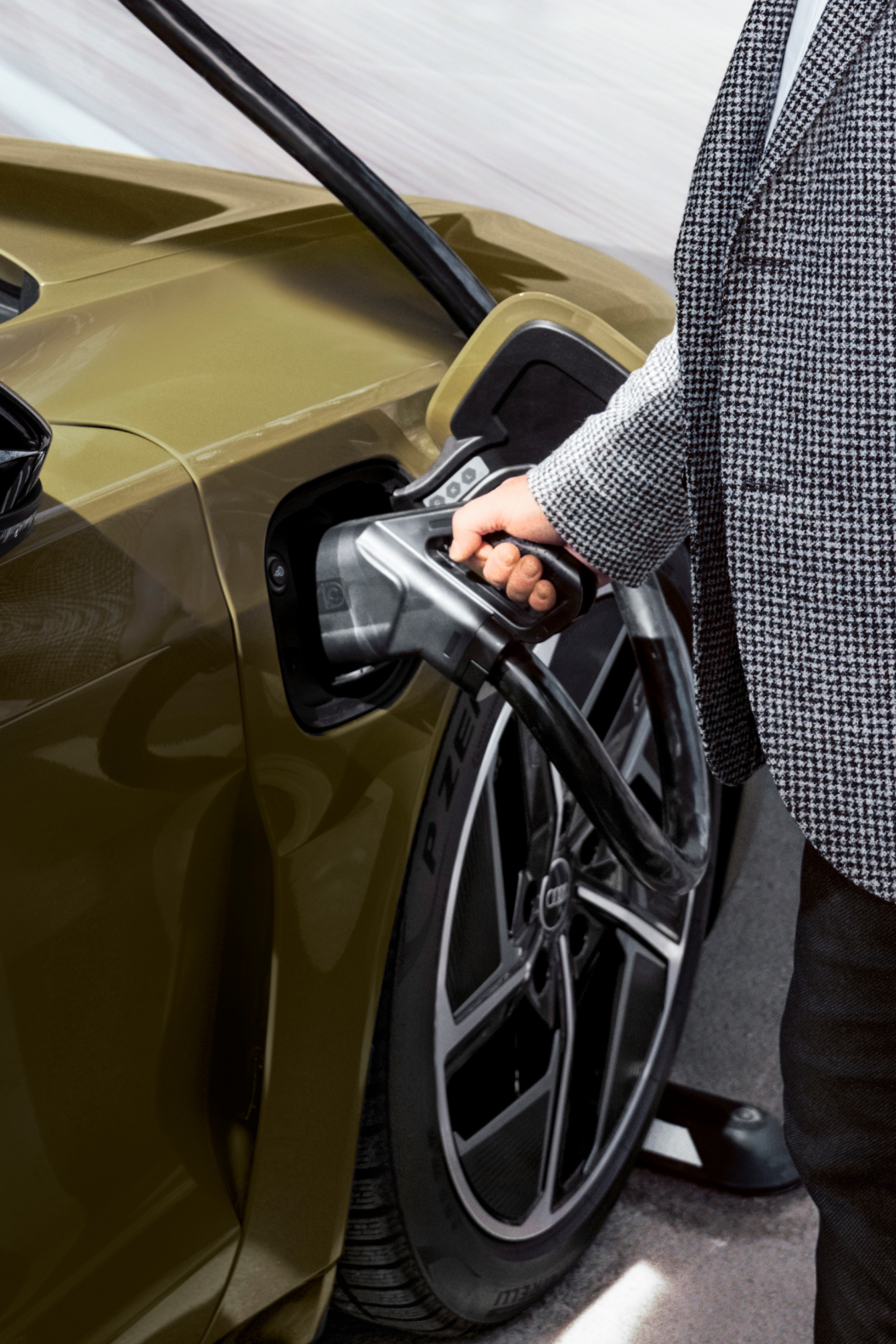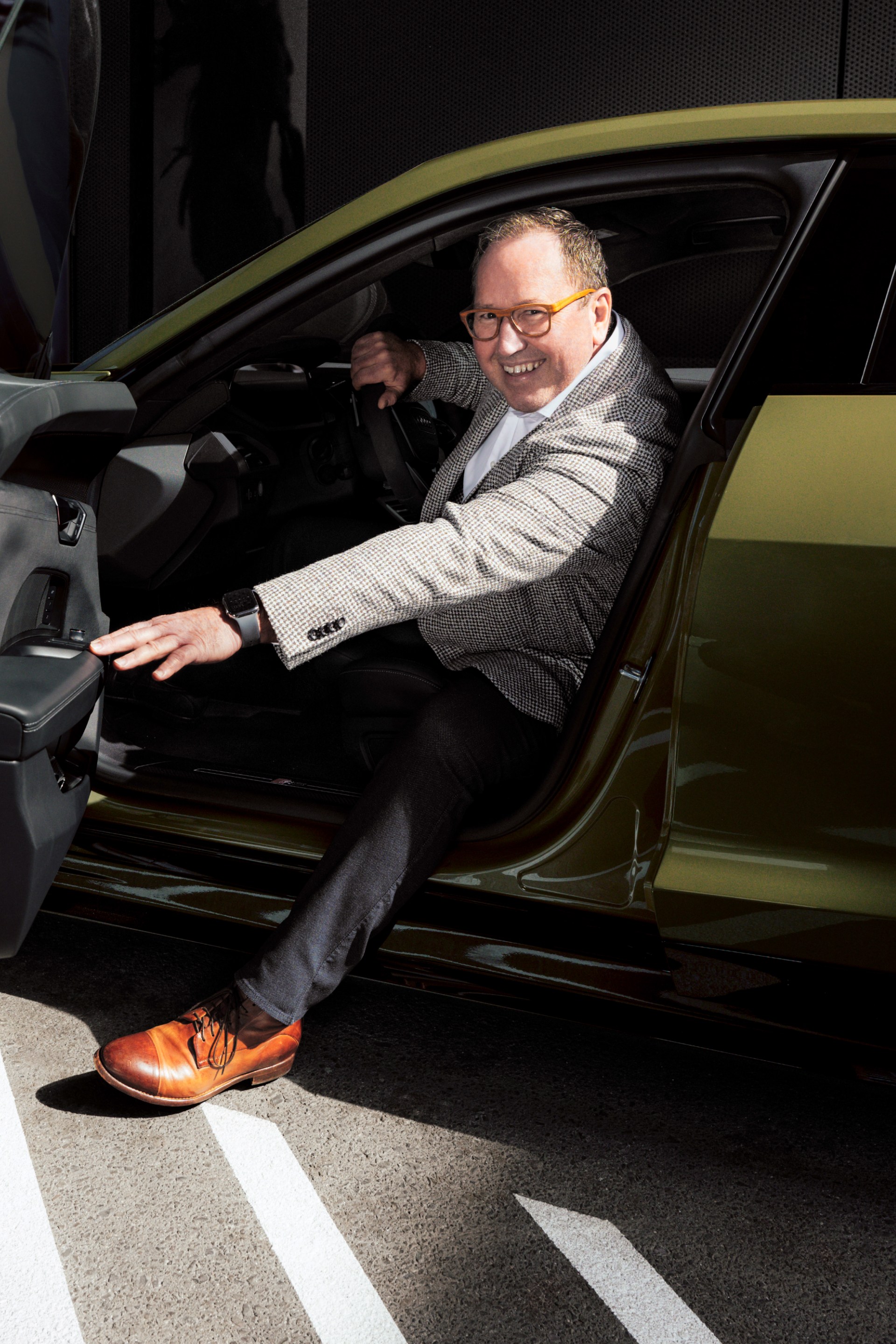“I enjoy talking about electromobility”
Helmuth Brants turns old batteries into powerful charging solutions – and you can try them yourself at the new Audi charging hub in Berlin. In this “Audi e-tron Story” he talks about an experience in the rain, second-life batteries and high-power charging.

In the “Audi e-tron Stories”, drivers provide an insight into what excites them about electromobility. This edition is about Helmuth Brants and his Audi RS e-tron GT, but also about the Audi charging hub in Berlin, to which Brants has a special connection.
In the “Audi e-tron Stories”, drivers provide an insight into what excites them about electromobility. This edition is about Helmuth Brants and his Audi RS e-tron GT, but also about the Audi charging hub in Berlin, to which Brants has a special connection.
It was a rainy day in November when Helmuth Brants felt the need for new, better charging concepts for electric vehicles. Ones that make charging faster and more convenient. “I was standing at a regular petrol station and got completely wet because there was no roof above the charging columns they made available,” the managing director at AW-automotive recounts. “And when I wanted to use the customer area, I was denied access because, apparently, as an e-vehicle driver, I wasn’t a petrol station customer as such.”
“The Audi charging hubs are pretty much a reaction to what I experienced at that petrol station,” says Brants – not without pride as he parks his Audi RS e-tron GT at the new Audi charging hub in Berlin. Brants’ company, which gives retired batteries a second life, is instrumental in making the premium charging infrastructure a reality.
About six years ago, Audi asked him to do an analysis for them. “We were to find out whether it was possible to build a storage system from used vehicle batteries, and how long such batteries could be used in the second-life cycle.” Since then, AW-automotive has been manufacturing so-called PowerCubes serving as buffer storage for Audi charging hubs. “The concept makes it possible to build them without power lines, making them independent of the grid,” Brants explains. The PowerCubes are continuously filled and serve as intermediate storage, making it possible to “offer high-power charging on a large scale in urban areas”, he explains.

Helmuth Brants is managing director at AW-automotive. The company breathes new life into retired e-car batteries by providing so-called PowerCubes serving as buffer storage.

The Audi charging hubs concept combines fast, convenient charging with an attractive design.
Helmuth Brants is managing director at AW-automotive. The company breathes new life into retired e-car batteries by providing so-called PowerCubes serving as buffer storage.
The Audi charging hubs concept combines fast, convenient charging with an attractive design.
“I have never run out of energy with an e-car.”
Helmuth Brants
“I drive up to 100,000 kilometres a year on business,” says the managing director, whose company is based in Sandersdorf-Brehna near Leipzig. “In my opinion, the charging infrastructure along the motorways is already very well developed. In any case, I have never run out of energy with an e-car.” But it’s important to create charging options in city centres as well, especially ones that customers want to use,” says Brants, referring to fast, stable and predictable charging. “As an Audi driver, I can book a charging slot in the Audi charging hub. That sounds self-evident, but it isn’t. So, in Nuremberg I can spend my time in the lounge, and here in Berlin I can run errands right next door. Which means that bad weather doesn’t bother me any longer.”
Audi currently offers Audi charging hubs in Nuremberg, Zurich and Berlin. Further locations are planned. For Brants, that will probably add another few thousand kilometres on the clock. In his eyes, the Audi charging hubs play an important role in making electromobility more attractive and more accessible. And not just for Audi customers. “No one is turned away,” Brants laughs as he climbs into his Audi RS e-tron GT.
“I feel like a pioneer”
Helmuth Brants is managing director at AW-automotive, a company that develops charging solutions for mobile and stationary applications using retired batteries. He has been driving an Audi RS e-tron GT for a few months now and he’s thrilled.
Three questions about electromobility for Helmuth Brants
01. How has your life changed since you started driving an electric car?
I am much more relaxed. Even my wife noticed. I used to come home from business trips and long drives all stressed out, because I took very few breaks. That was unreasonable of me. Now, when I drive long distances, I’m often forced to take a break, despite the good range of my Audi. And that’s very good for me.
02. Do you see yourself as an ambassador for a new era?
Absolutely. I’m almost 60 years old and, like many others, I have established routines and habits in my life. Ever since I’ve been driving an electric vehicle, I experience many new things that I can talk about. It’s a lot of fun and I feel like I am some kind of pioneer, doing a good deed.
03. What else do you find exciting about your own personal electromobility?
E-vehicles are exciting in other ways, too. You no longer have these tons of buttons in the cockpit. That beautiful screen is enough, it’s so much cleaner. Operating the vehicle is more sophisticated and somehow more intuitive, too. I was and still am pleasantly surprised at how different an e-vehicle feels.

Since going electric and taking charging breaks on long drives, Helmuth Brants returns home from business trips more relaxed.

Brants has only been driving the Audi RS e-tron GT for a few months and couldn’t imagine turning away from e-mobility ever again.
Since going electric and taking charging breaks on long drives, Helmuth Brants returns home from business trips more relaxed.
Brants has only been driving the Audi RS e-tron GT for a few months and couldn’t imagine turning away from e-mobility ever again.



.gif)